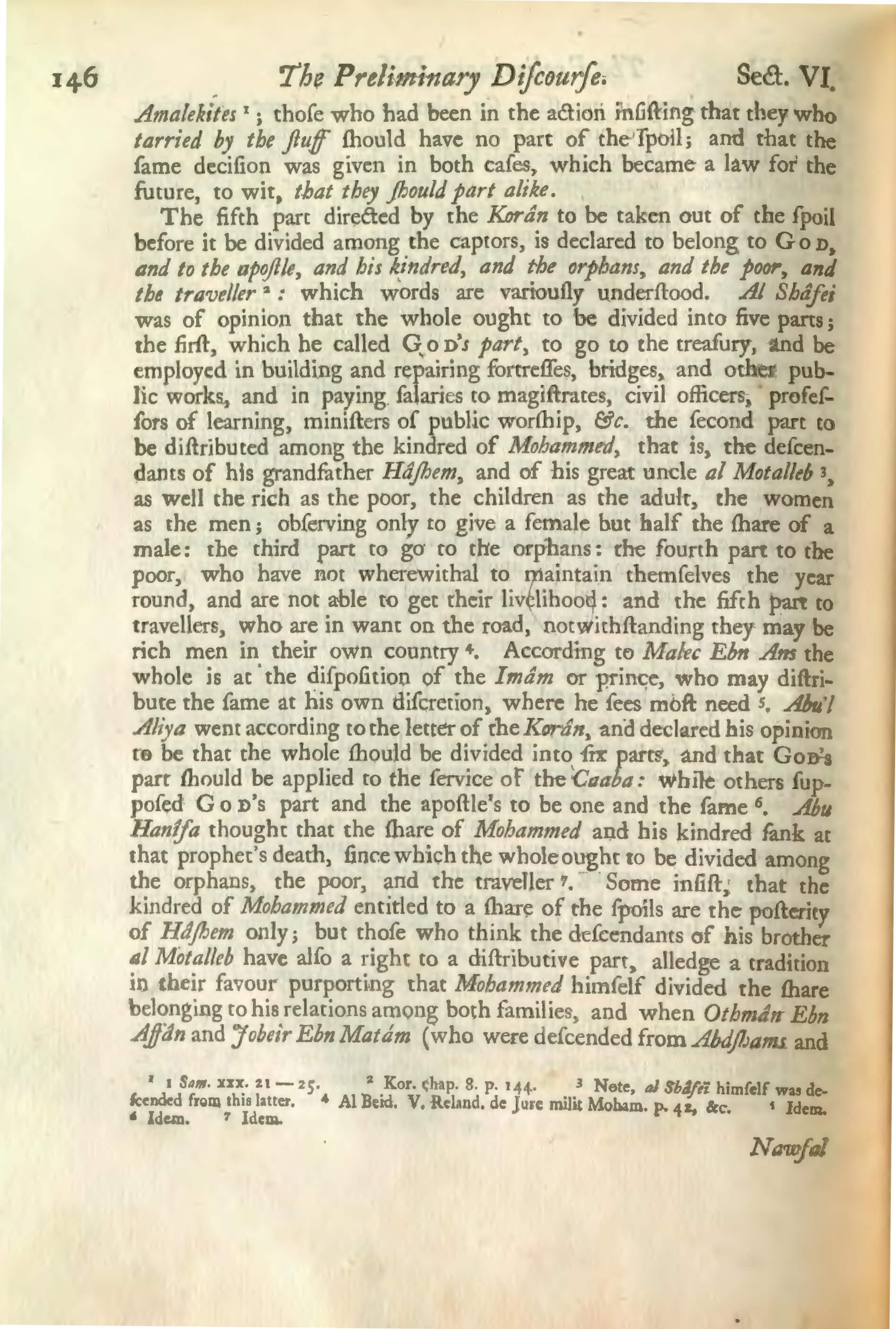George Sale, The Koran, commonly called the Alcoran of Mohammed, translated into English immediately from the original Arabic; with Explanatory Notes, taken from the most approved Commentators. To which is prefixed A Preliminary Discource (1734)
Amalekites 1; those who had been in the action insisting that they who tarried by the stuff should have no part of the spoil; and that the same decision was given in both cases, which became a law for the future, to wit, that they should part alike.
The fifth part directed by the Korân to be taken out of the spoil before it be divided among the captors, is declared to belong to God, and to the apostle, and his kindred, and the orphans, and the poor, and the traveller 2: which words are variously understood. Al Shâfei was of opinion that the whole ought to be divided into five parts; the first, which he called God’s part, to go to the treasury, and be employed in building and repairing fortresses, bridges, and other public works, and in paying salaries to magistrates, civil officers, professors of learning, ministers of public worship, &c. the second part to be distributed among the kindred of Mohammed, that is, the descendants of his grandfather Hâshem, and of his great uncle al Motalleb 3, as well the rich as the poor, the children as the adult, the women as the men; observing only to give a female but half the share of a male: the third part to go to the orphans: the fourth part to the poor, who have not wherewithal to maintain themselves the year round, and are not able to get their livelihood: and the fifth pare to travellers, who are in want on the road, notwithstanding they may be rich men in their own country 4. According to Malec Ebn Ans the whole is at the disposition of the Imâm or prince, who may distribute the same at his own discretion, where he sees most need 5. Abu’l Aliya went according to the letter of the Korân, and declared his opinion to be that the whole should be divided into fix parts, and that God’s part should be applied to the service of the Caaba: while others supposed God’s part and the apostle’s to be one and the same 6. Abu Hanîfa thought that the share of Mohammed and his kindred fank at that prophet’s death, since which the whole ought to be divided among the orphans, the poor, and the traveller 7. Some insist, that the kindred of Mohammed entitled to a share of the spoils are the posterity of Hâshem only; but those who think the descendants of his brother al Motalleb have also a right to a distributive part, alledge a tradition in their favour purporting that Mohammed himself divided the share belonging to his relations among both families, and when Othmân Ebn Affân and Jobeîr Ebn Matám (who were descended from Abdshams and
